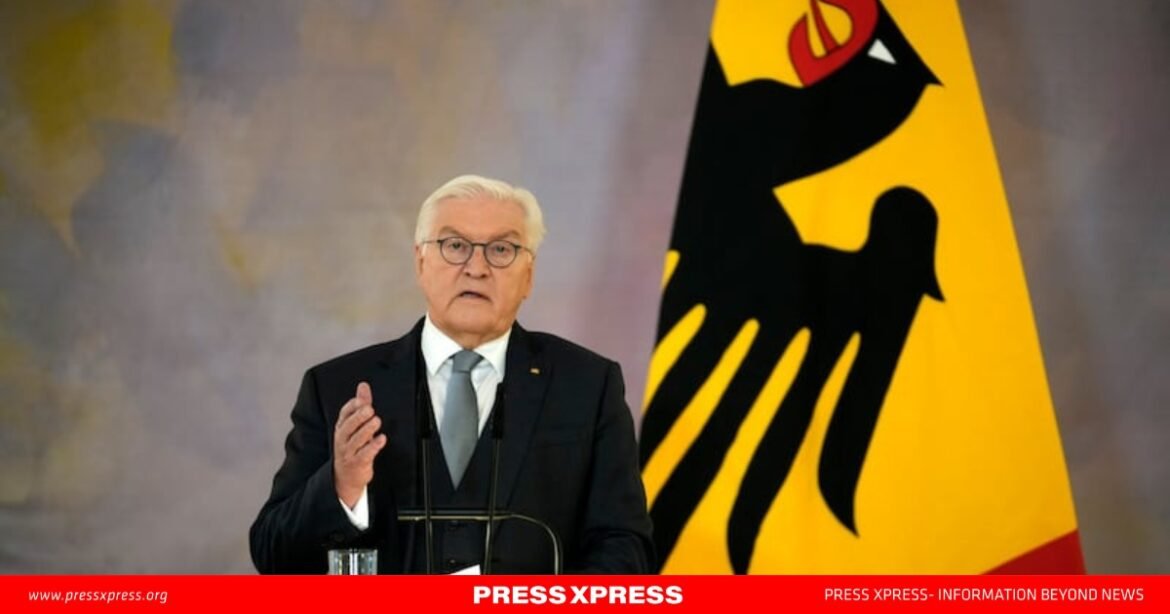- Germany heads to snap elections on February 23 after coalition collapse
- Economy, immigration, and climate policies dominate the political agenda
- CDU leads in polls; coalition negotiations likely to be challenging
Germany is poised for early federal elections on February 23, 2025, following the dissolution of the Bundestag by President Frank-Walter Steinmeier. This unprecedented move comes after the collapse of Chancellor Olaf Scholz’s coalition government, marking a significant juncture in German politics.
President Steinmeier emphasized the necessity of a stable and effective government, stating, “In difficult times like these, stability requires a government capable of taking action and reliable majorities in parliament.”
Collapse of the Coalition Government
The “traffic light” coalition, comprising the Social Democratic Party (SPD), the Free Democratic Party (FDP), and the Greens, was formed in 2021 with the aim of steering Germany through economic and social challenges. However, internal discord, particularly over fiscal policies amid economic downturns, led to its unraveling. The tipping point occurred in November 2024 when Chancellor Scholz dismissed Finance Minister Christian Lindner of the FDP, prompting the party’s withdrawal from the coalition. This left the government without a parliamentary majority, culminating in a failed confidence vote on December 16, 2024.
Germany’s president Frank-Walter Steinmeier dissolves parliament on Friday
Key Issues Shaping the Upcoming Election
The forthcoming elections are set against a backdrop of pressing national concerns that will dominate campaign agendas:
- Economic Challenges: Germany is grappling with a potential economic contraction, with forecasts indicating a possible recession. Industrial output has declined, and energy prices have surged, straining both businesses and consumers. The debate over the “debt brake,” a constitutional limit on government borrowing, has intensified, with parties divided over its relaxation to stimulate the economy.
- Immigration and Integration: The country faces challenges in assimilating a substantial influx of migrants, leading to social tensions and debates over immigration policies. Concerns about crime rates and resource allocation have brought this issue to the forefront of political discourse.
- Internal Security: Recent incidents, such as the attack on a Christmas market in Magdeburg resulting in multiple casualties, have heightened public anxiety regarding security and the effectiveness of law enforcement agencies. This has prompted calls for enhanced measures to ensure public safety.
- Climate Policy: Environmental concerns remain pivotal, with debates over sustainable energy policies, carbon emissions reduction, and the balance between economic growth and ecological responsibility. The Greens advocate for aggressive climate action, while other parties propose more gradual approaches.
Political Landscape and Party Positions
The dissolution of the coalition has led to a dynamic and competitive political environment:
- Christian Democratic Union (CDU): Under Friedrich Merz’s leadership, the CDU is leading in polls with 31% support. The party advocates for tax cuts, pro-business policies, and stringent immigration controls, positioning itself as a proponent of economic revitalization and security enhancement.
- Alternative for Germany (AfD): The far-right AfD has gained traction, particularly in regions with economic challenges, securing 19% in recent polls. Their platform emphasizes strict immigration policies and critiques of the current government’s handling of national issues.
- Social Democratic Party (SPD): Chancellor Scholz’s SPD is trailing with 15% support. The party proposes tax relief for lower-income households and increased public investment, aiming to address economic disparities and social welfare concerns.
- The Greens: With 14% in polls, the Greens focus on environmental sustainability, advocating for robust climate policies and investments in renewable energy, while also addressing social justice issues.
Political Landscape and Polling
| Party | Polling Percentage (%) |
| Christian Democratic Union (CDU) | 31 |
| Alternative for Germany (AfD) | 19 |
| Social Democratic Party (SPD) | 15 |
| The Greens | 14 |
Implications for Germany’s Future
The upcoming elections are critical, with potential outcomes that could reshape Germany’s domestic and international policies:
- Coalition Dynamics: Forming a stable government may prove challenging, especially with mainstream parties’ reluctance to collaborate with the AfD. This could lead to complex coalition negotiations and potential policy compromises.
- Economic Policy Direction: The election results will influence decisions on fiscal policies, including debates over the debt brake, taxation, and public spending, impacting Germany’s economic trajectory.
- Social Cohesion and Integration: The handling of immigration and integration policies will be pivotal in addressing social tensions and fostering national unity. The election outcomes could determine the approach towards multiculturalism and social inclusion.
- Climate Commitments: Germany’s role in global environmental initiatives and its commitment to climate goals will be shaped by the new government’s policies, influencing both national and EU-wide climate strategies.
As Germany approaches this electoral crossroads, the decisions made by its citizens will have profound implications, not only for the nation’s future but also for its position within the broader European and global context.


